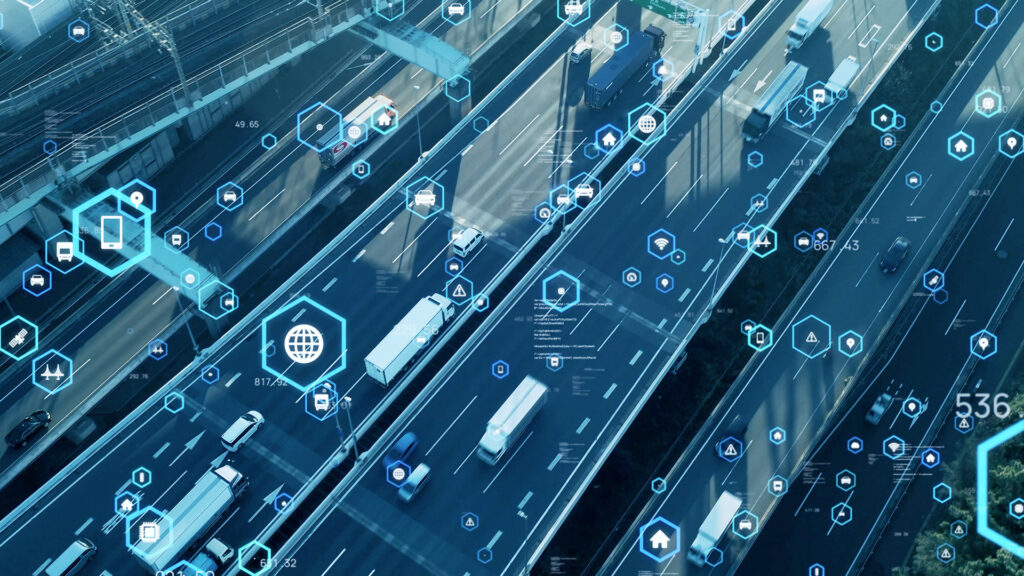Artificial intelligence is revolutionizing supply chain management, transforming the way companies plan, execute and optimize their logistics operations. In this article, we will explore how AI is redefining the Supply Chain landscape, its main benefits and the most innovative tools available on the market.
What is AI in Supply Chain?
Artificial intelligence in the supply chain refers to the implementation of systems and algorithms capable of analyzing large volumes of data, learning from historical patterns and making autonomous decisions to optimize logistics operations. This technology allows companies to automate complex processes, predict future events and adapt their strategies in real time.
AI in Supply Chain combines multiple technologies, including machine learning, natural language processing and predictive analytics, to create solutions that improve operational efficiency and decision making. These tools can process and analyze data from multiple sources, from IoT sensors to ERP systems, to provide valuable insights and actionable recommendations.
Benefits of implementing AI in the supply chain
Inventory optimization
Artificial intelligence revolutionizes inventory management through advanced prediction systems that accurately determine optimal stock levels. These systems consider both historical patterns and external factors to maintain the perfect balance between availability and storage costs. AI algorithms can automatically identify products with low turnover or at risk of obsolescence, allowing companies to take preventive measures and optimize their working capital.
Reduction of logistics costs
In the area of logistics costs, the implementation of AI generates significant savings through the automatic optimization of routes and loads. Intelligent systems analyze multiple variables to maximize efficiency in the use of resources and minimize downtime. In addition, process automation significantly reduces human errors in critical operations, which translates into lower operating costs and greater service reliability.
Improved Demand Forecasting
AI systems have radically transformed demand forecasting accuracy by simultaneously analyzing multiple variables that influence market behavior. Real-time adaptive capabilities allow predictions to be adjusted based on changing market conditions, while deep analysis of historical data makes it easier to identify seasonal patterns and emerging trends with unprecedented accuracy.
Applications of Artificial Intelligence in Supply Chain
Automation in Warehouse Management
The transformation of warehouse operations through AI is embodied in smart picking systems that optimize routes and picking sequences. The implementation of autonomous robots for material movement has revolutionized operational efficiency, while computer vision systems enable real-time inventory control with exceptional accuracy.
Optimizing Transportation Routes
Intelligent transportation systems have evolved to offer dynamic planning that considers variables such as traffic and weather conditions in real time. Load optimization and shipment consolidation are performed automatically, while real-time tracking allows for proactive adjustments to maintain operational efficiency.
Predictive analytics for decision making
AI-powered predictive analytics enables early identification of supply chain risks, facilitating preemptive decision making. The ability to simulate different scenarios helps in the evaluation of strategies, while data-driven recommendations ensure continuous optimization of operations.
AI tools and technologies in the supply chain
Machine Learning for logistics optimization
The application of machine learning in logistics has revolutionized route planning through advanced optimization algorithms. Predictive maintenance systems use this technology to anticipate maintenance needs on critical equipment, while demand prediction models reach previously unattainable levels of accuracy.
ERP software with AI integration
Modern ERP systems have evolved to incorporate AI capabilities that automate complex processes and provide integrated predictive analytics. Smart dashboards enable real-time monitoring of operations, facilitating informed and timely decision-making.
Success stories of artificial intelligence in Supply Chain
The implementation of AI in Supply Chain has already proven its effectiveness in various sectors. For example:
Amazon has revolutionized its inventory management by using AI to predict demand and optimize the location of products in its distribution centers, reducing delivery times by more than 30%.
DHL implemented AI systems for route optimization and has managed to reduce its last mile costs by 15%, while improving delivery accuracy.
Unilever uses AI to analyze data from multiple sources and improve its demand forecasts, achieving a 30% reduction in stockouts and improving the efficiency of its supply chain.
Conclusion
Artificial intelligence is redefining the way companies manage their supply chains. From inventory optimization to process automation and predictive analytics, AI offers innovative solutions to meet the challenges of an ever-evolving market. Adopting these technologies not only improves efficiency and competitiveness, but also opens up new opportunities to achieve operational excellence.
